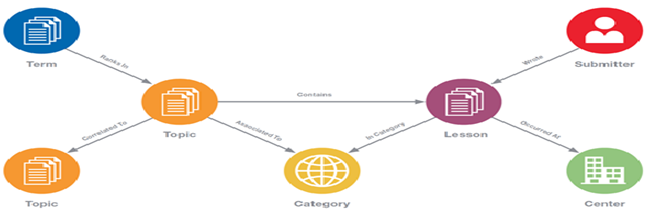
Upon streaming the internet, I came across with a video.
https://www.youtube.com/watch?v=IeTybKL1pM4
The video by Nina Paley says:
“Copying is not theft.
Stealing a thing leaves one less left.
Copying it makes one thing more,
that’s what copying’s for.
Copying is not theft.
If I copy yours you have it too,
one for me and one for you
that’s what copies can do.
If I steal your bicycle you have to take the bus.
But if if I just copy it, there’s one for each of us.
Making more of a thing, that is what we call copying.
Sharing ideas with everyone, that’s why copying is fun!”

Is copying really fun? In the context of reproduction, copying is technically a way for people to easily access and maximize the utility of a product. It is a form of making a certain product available to all, for instance a bicycle in the said video. That was definitely one way of copying.
It’s not simple or clear cut – sharing is not always ‘moral’. Just as it’s not always moral for your personal information is being shared to make a profit. Who would want that?
Everyone’s has been speaking against software piracy for too many years already, but there really hasn’t been any concrete and ultimate solution to it. I mean there are raids going on here in the country, but how much can that really help if not everybody is personally affected by the said losses and statistics?
You see, people, in general, like the easiest way in all situation. I mean are you willing to spend much for something that you can copy? Or would you want to pay for something that you can absolutely get for free? You basically need it, the risks as an individual or even as a small business if you practice enough caution aren’t really that scary, and it’s just there in front of you, waiting to make your daily operations a whole lot easier. Going forward, it’s much more of individual’s perception. Some may feel it’s okay to copy unless they use the file to make money. They may be right. It’s not a ten commandments situation “Thou shall not DL Warez, N00b” wasn’t on the tablets.
Using illegally downloaded software may be wrong, but does that mean they should be punished for using it? Unless of course they have already amassed a great fortune from using the software, then I guess that would be the perfect time to encourage them to buy it instead.
According to studies, about 41% of software worldwide is pirated and it remains to be on the rise. Business Software Alliance (BSA) survey revealed that in 2012 over half of the world’s computer users — 57% — admit they pirate software .

Consequences can be critical: they not only include economic losses, such as tax revenues, organizational profits, or lost jobs but they also bring health and safety risks because pirated software can be unreliable and unsafe.
Furthermore, a common view of software piracy portrays piracy as downloading commercial programs without payment, possibly from sketchy websites filled with viruses. In fact, illegal downloads cover only one angle of piracy. Buying duplicated copies of a program or sharing a program with a friend can count as piracy, as installing a program on multiple computers simultaneously often violates the program’s license agreement.

Legal Risks

Using pirated software carries high penalties under copyright law for users caught in the act. In other countries, copyright infringement can lead to up to five years in jail and a $250,000 fine. The owner of the software’s copyright can also sue for damages, which can run as high as $150,000 per copy. Although the idea of software piracy might evoke an image of an a home computer user, piracy often occurs in businesses, putting entire companies at legal risk. Even the U.S. Army was caught in 2013 for using over $180 million in pirated software, costing it a $50 million settlement.
Security Risks

Pirated software can carry viruses and other types of malware that infect computers. According to studies, 24 percent of pirated copies of Windows were either infected or has malware as soon as they connected to the Internet. Even if a piece of pirated software isn’t infected itself, it can pose a security risk through a lack of updates: Some copies of pirated software can’t update properly, leading users to continue using old versions with security holes.
Economic Risks

Pirated software takes away sales of legitimate software. Piracy in 2011 was responsible for illegally sharing $9.7 billion worth of software in the United States. Aside from the obvious effect on software development companies, piracy also harm businesses completely outside the software industry. A 2011 study by Keystone Strategy found that law-abiding companies are put at a $8.2 billion disadvantage over the course of five years, due to other companies’ willingness to pirate software to save money.
Productivity Risks

Using outdated pirated software can cause users to encounter bugs and glitches, leading to lost work, lost time and frustration. In addition to problems with the software itself, pirated programs lack a warranty and access to customer support, making it more difficult to get help when problems occur.

Software piracy is harmful and illegal. It has brought many ethical dimensions, including not only serious effects on economies, companies profits and individual losses in terms of money, safety and health, but also those related to pricing policies and software license terms and conditions.
Ways on how to fight software piracy are numerous. To decrease a size of software piracy issue, the technology sector has been initiating creation of pressure groups working hard on increasing public awareness, most recently, by presenting collected data, reports and studies from all over the world.
The cost issue has significant influence on piracy rates, however, it is not an ethical excuse because there are other free alternative services that provide computer software that customers need. For example, there is open source computer operating system GNU/Linux as an alternative to Microsoft Windows. There are also free and shareable alternatives to other programs, such as Open Office as a free alternative to Microsoft Office.
To conclude, software piracy demotivates software creators, decreases innovation and violates contracts on all levels. It is necessary to discuss its ethical aspects and seek for solutions how to decrease it rather just to hesitate recognizing the fact that by choosing the easiest way means a death of companies and artist who devoted their time and talents in making original software.

Sources:
1. BSA (2012). BSA Global Software Piracy Study. May 2011. http://portal.bsa.org/globalpiracy2011/downloads/study_pdf/2011_BSA_Piracy_Study-Standard.pdf [cited 2013-03-10].
2. BSA. (2009). A Fifth of PC Software in United States is Pirated, Posing Challenges to High Tech Sector and Cyver Security. May 12, 2009. http://www.bsa.org [cited 2013-03-10]
3. BSA (2012). Shadow Market of Pirated Software Grows to $63 Billion. Business Software Alliance. http://portal.bsa.org/globalpiracy2011/ [cited 2013-03-12] 4





















 jamas. It’s also convenient because you don’t need to wait for the store to open.
jamas. It’s also convenient because you don’t need to wait for the store to open.

 Five Reasons to Go Wireless
Five Reasons to Go Wireless





 Organizations face the challenge of meeting the ever-increasing demands of customers and the marketplace with limited resources. Many have turned to outsourcing as one of their key organisational strategies. IT outsourcing refers to the contracting out of IT services or functions, which have previously been carried out by internal staff. This paper will address some of the risks involved with outsourcing information systems to third party service provider(s). There are two driving forces when an organisation considers the option of outsourcing. One is the availability for specialists in external service providers to provide a more efficient and effective service than is possible within the organisation, and the other is the possibility of cost savings. By outsourcing non-core functions and processes, an organisation can devote more of its key resources to core business activities.
Organizations face the challenge of meeting the ever-increasing demands of customers and the marketplace with limited resources. Many have turned to outsourcing as one of their key organisational strategies. IT outsourcing refers to the contracting out of IT services or functions, which have previously been carried out by internal staff. This paper will address some of the risks involved with outsourcing information systems to third party service provider(s). There are two driving forces when an organisation considers the option of outsourcing. One is the availability for specialists in external service providers to provide a more efficient and effective service than is possible within the organisation, and the other is the possibility of cost savings. By outsourcing non-core functions and processes, an organisation can devote more of its key resources to core business activities.


